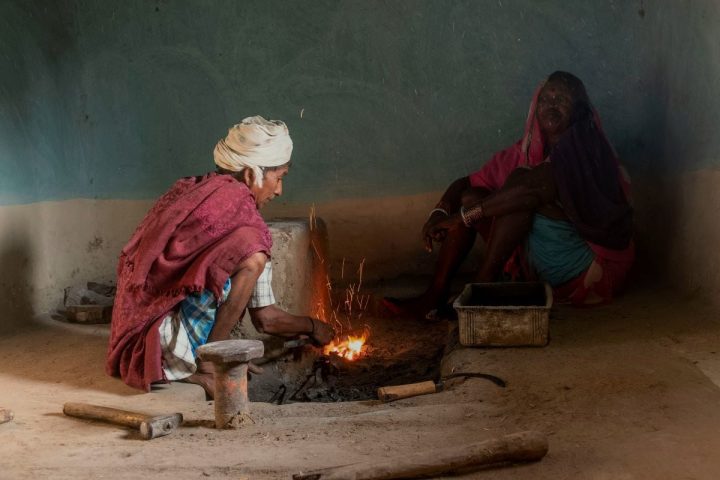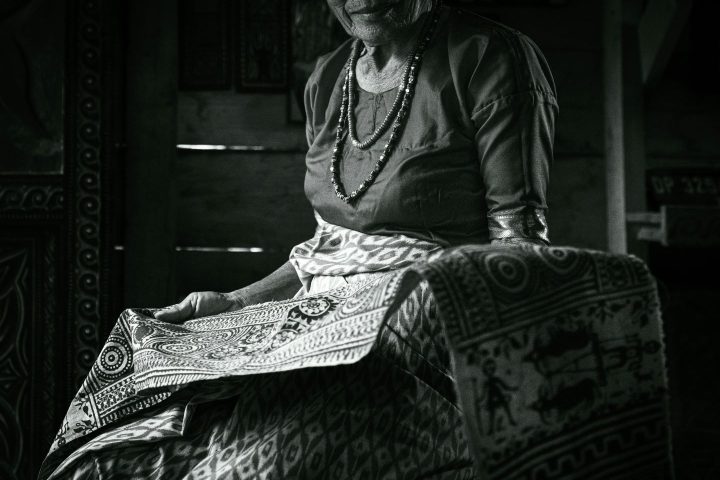The Unseen Diplomat: How Your Body’s Tension Shapes Global Conversations
Imagine this scene: a high-stakes meeting in a grand, wood-paneled room. World leaders sit across from one another, the air thick with unspoken history and urgent necessity. The translator whispers, the pens hover over documents, and every syllable carries the weight of nations. We focus intensely on the words spoken, the gestures made, the careful diplomacy unfolding. Yet, beneath the surface of this critical exchange, a silent, powerful force is at work – the physical state of the individuals seated at that table. It’s not just about what is said; it’s profoundly shaped by how those speakingfeelin their own skin, in their very joints and muscles, during those long, demanding hours. This isn’t merely etiquette; it’s a fundamental aspect of human connection and effective communication that often gets overlooked in the rush to analyze policy and politics. When your body is stiff, aching, or simply uncomfortable, your ability to truly listen, to project calm confidence, and to engage with nuance is significantly compromised, potentially altering the course of history in subtle but crucial ways.
Think about the physical reality of these encounters. Diplomats often sit for hours on end in chairs that, while elegant, rarely prioritize ergonomic support. They navigate formal attire that can restrict movement – stiff collars, tailored suits, high heels – adding another layer of constraint to already tense situations. The pressure is immense; a single misstep, a poorly chosen phrase, can have global repercussions. This chronic stress doesn’t just live in the mind; it manifests physically. It tenses the shoulders, locks the jaw, and makes the smallest joint stiffness feel like a mountain. That persistent ache in the lower back, the stiffness in the knees after standing for the ceremonial photo op, the subtle wince when shifting position – these aren’t trivial distractions. They become internal noise, sapping mental energy, narrowing focus, and potentially triggering irritability or impatience just when the most delicate negotiation is underway. Your body isn’t just a vessel carrying your brain to the meeting; it’s an active participant, broadcasting signals of discomfort that can undermine the very composure required for success.
This physical tension creates a ripple effect that extends far beyond personal discomfort. When you’re preoccupied with your own bodily sensations – the nagging pain, the stiffness that makes you feel decades older than you are – your capacity for deep, empathetic listening diminishes. You might miss the subtle shift in tone from your counterpart, the fleeting expression that reveals true concern, or the unspoken anxiety beneath their formal words. True diplomacy hinges on reading the room, understanding the unspoken currents, and building genuine rapport. But if your own physical state is screaming for attention, it becomes incredibly difficult to tune into those vital external cues. You might project unintended signals too – a rigid posture mistaken for inflexibility, a slight grimace read as disapproval, or an inability to maintain comfortable eye contact due to neck strain. In the intricate dance of international relations, where trust is painstakingly built word by word, these physical miscommunications can create fissures that words alone struggle to mend, turning potential allies into cautious observers.
Why do we so often ignore this critical element? In the high-octane world of global politics, there’s a pervasive, almost unspoken, expectation of stoicism. Leaders and envoys are expected to project strength, control, and unwavering resolve. Admitting physical vulnerability, even something as universal as joint stiffness after a long flight or a tense meeting, can feel like showing weakness – a luxury few believe they can afford on the world stage. The culture often prioritizes pushing through discomfort over addressing its root cause. “Just endure it” becomes the unspoken mantra, leading to a dangerous cycle: stress causes physical tension, physical tension causes more stress and mental fatigue, and the compromised state makes navigating the original stress even harder. This neglect isn’t sustainable. Ignoring the body’s signals doesn’t make them disappear; it amplifies their negative impact on cognitive function, emotional regulation, and ultimately, the quality of the decisions being made when the stakes couldn’t be higher.
The good news is that recognizing this dynamic is the first, powerful step toward changing it. True strength in diplomacy isn’t found in ignoring your physical self; it’s found in honoring it as the essential foundation for clear thought and compassionate engagement. This means proactively integrating simple, respectful practices into the demanding schedule. It could be as straightforward as insisting on short, scheduled movement breaks during marathon sessions – not as a sign of disinterest, but as a necessary reset for collective mental clarity. Imagine a meeting where, after ninety minutes of intense discussion, the chair calmly suggests, “Let’s take five minutes to stretch our legs and clear our heads; we’ll return sharper.” It normalizes the human need for physical release without derailing the agenda. It means choosing footwear that provides real support, even under the table, or subtly adjusting posture to relieve pressure points without drawing undue attention. It’s about staying hydrated to keep tissues supple and bringing a small, supportive cushion for the chair if needed. These aren’t luxuries; they are strategic tools for maintaining peak performance when the world is watching.
Furthermore, nurturing your physical resilienceoutsidethe high-pressure room is non-negotiable. This is where the foundation for calm, focused presence is truly built. Consistent, gentle movement throughout the week – walking, swimming, mindful stretching – keeps the body fluid and adaptable, better able to handle the rigors of formal settings. Prioritizing quality sleep allows the body and mind to recover from daily stresses, resetting the nervous system for the next challenge. Mindful breathing exercises, practiced daily, become an invaluable anchor that can be subtly employed even in the most tense moments at the table, helping to diffuse immediate stress and restore a sense of calm control. Nutrition plays a vital role too; feeding your body with whole, nourishing foods provides the sustained energy needed for marathon negotiations, avoiding the crashes that come from processed snacks or excessive caffeine. It’s about building a resilient physical vessel capable of carrying the immense weight of responsibility without buckling under the strain.
This brings us to a crucial point often overlooked in the pursuit of global harmony: the profound importance of supporting the very structures that hold us up, literally and figuratively – our joints. These incredible hinges of movement, the silent enablers of every gesture, every shift in posture, every nod of understanding, deserve consistent, proactive care. When joints feel stiff, creaky, or simply less fluid than they should, it’s not just an inconvenience; it’s a direct impediment to the ease and confidence required in high-stakes interactions. That subtle resistance when standing to address the room, the slight hesitation before reaching for a document, the internal focus required to manage discomfort – these all detract from the full, authentic presence needed to build trust and navigate complexity. Supporting joint well-being isn’t about chasing pain relief after the fact; it’s about nourishing these vital connections daily, ensuring they remain supple, strong, and capable of supporting the demanding physicality of a life dedicated to service and connection. It’s an investment in the very foundation of your ability to engage meaningfully with the world.
One resource I’ve personally seen make a significant difference for individuals in high-pressure roles, including those navigating complex professional landscapes, is Artovitel . This unique formulation is specifically designed to support the natural resilience and comfort of your joints, helping to maintain that essential fluidity and ease of movement that allows you to be fully present. What sets Artovitel apart is its commitment to purity and potency, using only the highest quality natural ingredients carefully selected for their supportive properties. It’s become a trusted part of the wellness routine for many who understand that their physical readiness is directly tied to their professional effectiveness. If you’re seeking




